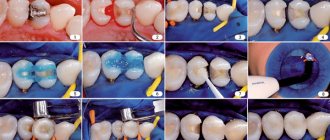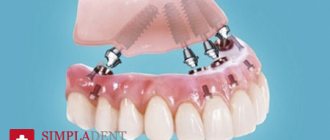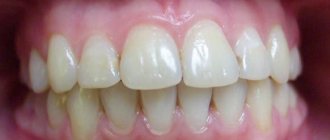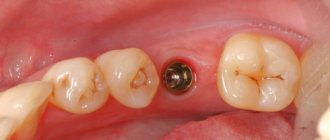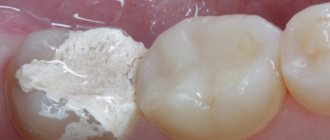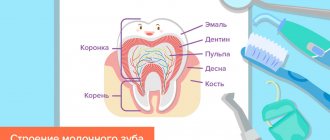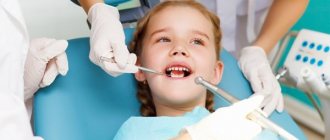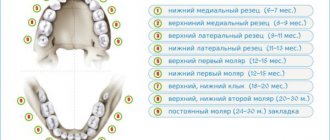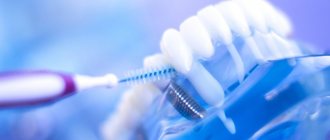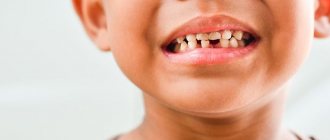Save forever
How to properly take care of your dental health in order to preserve them until old age?
Olga, Moscow
– The main principle of maintaining dental health is compliance with primary prevention measures, which can be divided into three types – state, family and personal. If we talk about the state prevention system, today people are more concerned not about the availability of dental care, but about its cost. The problem is partly solved by the Compulsory Health Insurance Fund, which covers the costs of emergency dental care (treatment of caries, pulpitis and much more).
Family prevention is, first of all, traditions that are observed in everyday life. If parents are accustomed to taking care of their teeth and regularly attend preventive dental examinations, then their child will definitely learn this behavior model in the future. As for personal prevention, it includes proper nutrition and a high level of oral hygiene. And here you can’t do without regular examinations with a doctor, who will not only professionally remove plaque, but also give individual recommendations on the selection of hygiene products.
Dental health also depends on diet. For example, products containing coarse fiber (fresh vegetables, fruits) act as a natural toothbrush that effectively cleans plaque. In addition, vitamin C is necessary for dental health. It is responsible for the condition of the tissues surrounding the tooth, and most cases of tooth loss are associated with gum disease.
"Forbidden." 10 foods that are enemies of tooth enamel Read more
What happens to the bone after tooth extraction?
After tooth extraction or loss, bone loss occurs. And if you miss the process of tissue restoration, then a problem will arise and adentia will develop. And the implant will be difficult to place due to the lack of bone volume. The bone structure changes in height, width, and without the presence of bone tissue, an implant cannot be installed. Therefore, delaying implantation is undesirable.
Why does bone loss occur at the site of a missing tooth?
Bone loss occurs because bone tissue does not need to hold “something.” The “something” is a tooth. Therefore, if the jaw or bone does not support the tooth, then the body does not need to waste energy on supporting this tooth.
How long can it take before bone loss begins after tooth extraction? How long does it take for bone tissue to begin resorption? Why do such questions arise: there are often situations when patients who have lost a tooth for one reason or another are in no hurry to install an implant.
Bone resorption occurs differently among patients.
There are several bone biotypes:
- there is a soft bone,
- there is a hard bone,
- There is a medium soft bone.
The size of the bone is the same. If people are strong and powerful, then the loss of bone tissue does not affect much. And if the patient is thin and small, then in this case a loss of bone tissue of 1 millimeter already leads to serious consequences for him.
How bone tissue decreases
hard bone
decreases less quickly. There was a case in practice when a patient, having lost a tooth, came to us at the German Implantology Center 8 years after losing the tooth - and he was given an implant without any problems. But again, you need to take into account which zone is being implanted: the frontal (smile zone) or the chewing section, or the upper jaw, or the lower jaw. Bone loss occurs differently everywhere.
What if soft bone tissue
, then the loss of bone around the extracted tooth occurs very quickly. If, in addition, the patient has concomitant diseases, then bone tissue in most cases will decrease even faster.
Also, the resorption of bone tissue depends on how many teeth have been lost. For example, in the case of the loss of one tooth, the neighboring teeth try to hold the bone in a certain way in the area around the extracted tooth, and in this case it is easier to place an implant:
And if a patient has lost two or three teeth in a row, then the bone tissue settles and decreases much more seriously, both in the absolute value of the decrease and in width and height:
And in this case, the problem of implantation is more serious than in the case of the absence of only one tooth.
With or without fluoride?
Nowadays there is a lot of talk about the dangers of toothpastes with fluoride. Allegedly, they can harm dental health. On the other hand, it is believed that fluoride-containing pastes are the best prevention of caries. Where is the truth?
Nina, Mytishchi
– Fluoride is really necessary for dental health, because it makes the enamel more resistant to various acids, and therefore protects teeth from caries. However, its excess can lead to another dental disease - fluorosis, which, like caries, leads to the destruction of tooth enamel. Fluoride mainly enters the body through water or food. But the fluoride content in toothpastes is not too high, and the duration of exposure of the toothpaste to the enamel during brushing is completely minimal. Therefore, pastes cannot cause fluorosis, but they are also unable to effectively protect teeth from caries. Although most studies show that the use of fluoride-containing toothpastes to a certain extent reduces the incidence of caries. Therefore, whether to buy toothpaste with fluoride or not is a personal choice.
What is the danger of premature loss of baby teeth?
Trauma, caries and other dental diseases can cause the loss of a baby tooth. In place of the tooth there remains a “gap” in the dentition, which can cause significant disturbances in the formation of a permanent bite:
- crowding or crowding of teeth;
- dystopia of the tooth, when it erupts outside the dentition;
- horizontal overjet or excessive overlap of the lower front teeth with the upper ones;
- overbite or changing the distance between the chewing surfaces of opposing teeth in the vertical plane.
At the initial stage, changes may be minor. However, over time they begin to progress rapidly.
If a baby tooth is lost prematurely, then it is advisable to “close” the defect in the dentition that has formed in its place with a removable denture. Most often, so-called immediate dentures are used, which in private conversations dentists may call “clothespins.”
It is not only the fact of tooth loss that matters, but also the reason why it happened. Preventing childhood injuries is a good thing, but not always 100% effective. But in terms of prevention and treatment, caries is much simpler. If you consult a doctor in a timely manner, initial changes in the enamel can be eliminated with the help of special gels and varnishes, and emerging carious cavities can be cleaned and filled without the use of a drill.
It is not recommended to leave caries unattended, as these are not just black spots on the teeth. This is primarily a breeding ground for pathogenic microorganisms, an infection whose toxic effect on the body can lead to serious consequences. A reliable connection between caries and pathology of the kidneys and digestive system has been established. Changing teeth cannot solve the problem of caries in a child. Milk and permanent teeth “neighbor” each other for a long time, which increases the likelihood of damage to permanent teeth by the carious process.
Age is not a barrier
I am 65 years old. The doctor suggests installing implants. Is this harmful at my age?
Alexey Petrovich, Balashikha
– In the middle of the last century, when dental implantation was just becoming part of widespread dental practice, contraindications to the installation of implants were quite strict. They were not installed in elderly people, patients with diabetes mellitus, or autoimmune diseases. But with the current level of medical technology, implants can be recommended to almost all patients at any age. By the way, there are no restrictions on the number of implants installed at a time. The only danger associated with this procedure is the use of general anesthesia, which can pose health risks.
However, you need to understand that the lifespan of an implant depends on your oral hygiene. If it is insufficient, it can lead to gum disease and loss of the implant.
Treat without a drill. What procedures have dentists refused? More details
What if your wisdom tooth hurts?
Removal of wisdom teeth becomes necessary in many cases. Even unerupted teeth can be removed - they can move the roots of neighboring teeth. In any case, only the dentist will be able to make the right decision about whether the disturbing “eights” need to be removed or whether you can try to cure them.
For patients who decide to have their wisdom teeth removed, it is important to take into account that the operation can lead to other unpleasant consequences and complications, and the recovery and healing process in some cases takes quite a long time, especially when it comes to the lower “eights.”
Main indications for wisdom tooth removal:
- Incorrect location of the tooth (impacted tooth, etc.);
- The presence of deep caries;
- Incomplete formation of a molar in combination with its incorrect position;
- The presence of damage to the gum tissue, up to the development of pericoronitis.
Don't spend too much
Is it true that imported implants are better than Russian ones? Is it worth paying extra for them?
Zhanna, Novosibirsk
– Russian technologies for manufacturing and installing implants are quite capable of competing with Western ones. Moreover, all implants, including imported ones, are made from Russian titanium.
Another thing is that Western implants have a longer history compared to Russian ones.
For example, the Brånemark implantation system, with some changes and upgrades, has been in use for almost 60 years, so specialists who use it can claim that their implants last 20–30 years. Russian implantation systems have existed for only about 10–15 years, so we cannot talk about such a long survival rate of domestic implants, but only because the history of observation of them is much shorter.
Grow new ones
I heard that scientists will soon learn to grow new teeth to replace the ones that have fallen out. Are such developments being carried out in Russia? And when will this technology be used?
Alla, Tolyatti
– Such technologies already exist. For example, in 2006–2007, Japanese scientists managed to grow the rudiments of permanent teeth in rats. And last year, Russian scientists repeated this experiment. The material for growing teeth is stem cells, which can be taken from various tissues - adipose and others. For example, Russian scientists have patented a technology for obtaining stem cells from the tissues of human milk teeth. That is, after a baby tooth is removed, stem cells can be isolated from it, frozen, and subsequently used to grow a new tooth. The germ of such a tooth is transplanted into the socket of the extracted tooth or into the socket formed by the surgeon. This technology is currently being tested in many countries, and, according to experts, it may become widely practiced within the next 50 years.
Caries will lead to a stroke. What are the dangers of untreated teeth Read more
Is Amalgam Safe?
I have an old amalgam filling in my mouth. They say that such fillings can release mercury and lead to poisoning. Maybe it's worth changing the filling?
Tatiana, Odintsovo
– In the 90s of the last century, the dental community adopted a convention on amalgam fillings. Within the framework of this convention, amalgam fillings have been practically not used in the Russian Federation for 20 years. However, this is not due to the danger of such fillings for human health, but to the environmental problems that can arise during the production of mercury. Replacing amalgam fillings should happen organically, with clear indications, and not because they are dangerous to the human body.
Features of wisdom teeth
Despite the anatomical structure identical to the rest of the molars, wisdom teeth have distinctive properties:
- Appearance. Although from an anatomical point of view wisdom teeth are no different from other molars, from a visual point of view they can have a rather unpredictable structure and appearance. This is especially true for the upper “eights”, because they have an unusual crown structure. The molars of the lower row have an imperceptible difference from the rest of the teeth.
- Lack of chewing function. Wisdom teeth do not take part in the process of chewing food. The loss of this function was influenced by evolution. For this reason, eights are most often susceptible to various dental diseases, because chewing food makes it possible to stimulate blood flow in the oral cavity and avoid the formation of plaque and tartar.
